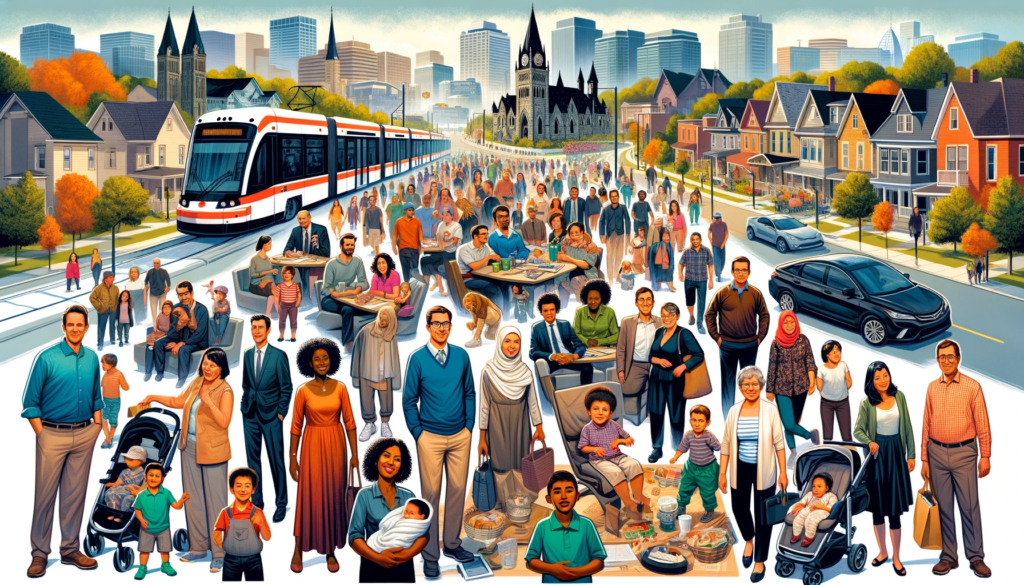Hey there, Ottawa friends! Let’s chat about something that’s probably on a lot of our minds these days: living in Ottawa without breaking the bank. You know, with everything getting pricier, from your morning coffee to rent, it’s a topic we just can’t ignore.
A Peek into Ottawa’s Wallet
First off, let’s talk living wages in Ottawa. A living wage is basically what you need to earn to cover the basic expenses in our lovely city. And guess what? In 2023, it shot up by 12%! That’s a big leap, and it’s got a lot of us feeling the pinch. It’s not just about more money for groceries or gas; it’s about keeping up with everything getting more expensive.

Ottawa Vs. The Rest
Now, how does Ottawa compare to other cities in Ontario? Well, we’re unique, being the capital and all. But that also means higher costs of living compared to some other spots in the province. It’s a mixed bag, really.
Real People, Real Stories
Let’s get real for a second. Imagine being a single parent in Ottawa, trying to make ends meet. The jump in living wage means stretching every dollar even further. It’s tough, and government help, while good, often isn’t enough to cover everything.
A Bigger Picture
This isn’t just about individuals, though. It’s a big deal for small businesses too. They’re trying to pay fair wages while keeping the lights on. And it’s not just an Ottawa thing; it’s a society thing. The gap between what people earn and what they need is growing, and that’s a problem for all of us.
So, What’s Next?
We can’t just throw our hands up and call it a day. We need ideas, policies, maybe even some out-of-the-box thinking to make Ottawa affordable again. Things like better public transport, affordable housing, and maybe tweaking minimum wages could help. Community groups are already on it, raising awareness and pushing for change.

Not Just an Ottawa Thing
Now, let’s zoom out a bit and look at the whole country. Canada, with its stunning landscapes and diverse culture, is amazing, but let’s be real, it’s getting pricey to live here, especially in places like Ottawa. The whole country is feeling the squeeze with high housing costs and fewer rental options. It’s a bit of a crisis, honestly.
A Trillion-Dollar Challenge
We’re talking about needing over 22 million housing units by 2030 to keep things affordable. That’s a whopping 3.5 million more than what’s already planned. And it’s not just the government’s job. We need businesses, big and small, to pitch in too. It’s a huge task, but hey, we’ve got to rethink how we do housing in Canada.
Government Steps In
Thankfully, the government’s not sitting this one out. They rolled out the National Housing Strategy in 2017, aiming to make housing safer and more affordable. There are a bunch of programs in place to boost housing supply, but we still need to do more.
A System-Wide Solution
Here’s the thing: housing is a system, and every part of it needs to work together. We’re talking more houses for rent and to own. But we’ve got to speed up the process, as it takes time for new housing to make older units more affordable.
The Big Question
The big debate is how we’re going to make all this happen. It’s not just about building more; it’s about making it affordable for everyone. And that’s a conversation we all need to be a part of.
Wrapping Up
Alright, Ottawa, that’s a lot to take in, right? But it’s important stuff. We’re at a crossroads, balancing our status as the capital with the real-world issues of everyday folks. Getting a grip on living wages and housing affordability is crucial, not just for our wallets, but for the future of our city and our country. Let’s keep the conversation going and work together to make Ottawa a place we can all afford to call home.
